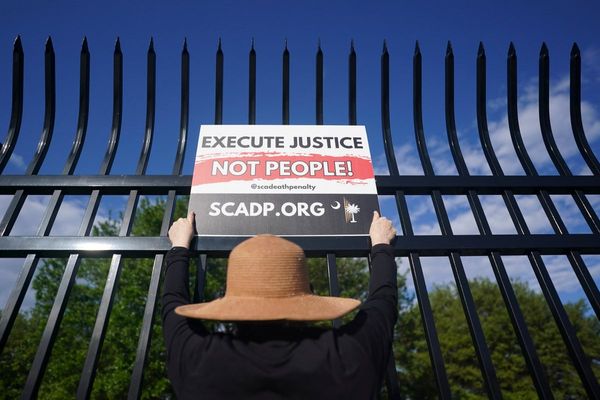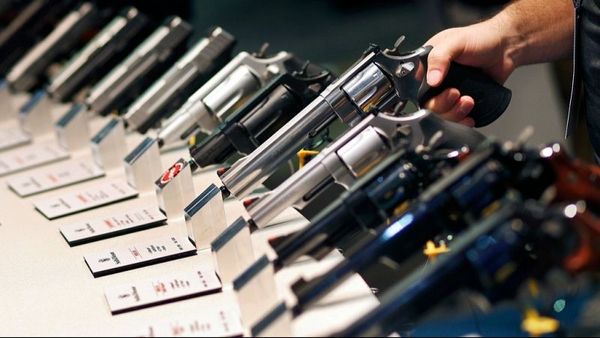The Covid-19 infection rate in Wales has continued to grow with more than 14,000 new cases of the virus recorded in the latest figures.
On Sunday the latest data from Public Health Wales, covering the 24-hour period up to 9am on December 31, showed 14,036 new cases bringing the total in Wales since the pandemic began to 646,159.
The total number of deaths within 28 days of a positive Covid test has now risen to 6,581 in Wales with a further 14 fatalities since the last data was released. The figures relating to deaths covers the 24-hour period up to 9am on December 31.
Read more: Mark Drakeford warns Wales to brace for 'difficult' January
The latest seven-day infection rate across Wales, based on the seven days up to December 27, has risen to 1,415 from 1,190.2 cases per 100,000 population on Friday – the highest figure at any stage of the pandemic.
Infection rates in each local authority have risen. The highest rate in Wales for the seven days from December 21 to 27 is Merthyr Tydfil, where the figure is 1,826, followed by Rhondda Cynon Taf with 1,741, Cardiff with 1,586, and Torfaen with 1,571. The only areas where the rates are under 1,000 are Monmouthshire and Powys.
Three areas of the country recorded more than 1,000 cases in a 24-hour period. They were Cardiff with 1,461 cases, Rhondda Cynon Taf with 1,115 cases, and Swansea with 1,030.
The next-highest numbers of new Covid cases were in Caerphilly, where 749 cases were reported, Bridgend with 700, Neath Port Talbot with 683, Newport with 674, Flintshire with 585, Carmarthenshire with 569, Conwy with 568, and the Vale of Glamorgan with 521.
The counties with fewer than 500 were Torfaen with 469, Blaenau Gwent with 400, Powys with 387, Denbighshire with 385, Powys with 387, Denbighshire with 385, and Wrexham with 354.
The areas with the fewest cases were Gwynedd with 311, Pembrokeshire with 229, Anglesey with 238, Monmouthshire 234, Merthyr Tydfil with 213, and Ceredigion with 179.
What do you think should be done to slow the spread? Have your say in the comments section
As of December 29 there were 604 people in general and acute hospital beds with coronavirus (confirmed, suspected, and recovering), a rise on the 444 reported on December 22. This is an increase of 36%.
There were 32 people in ventilated intensive care beds with Covid-19 on December 30, one more than on December 22.
As of 9am on December 30 a total of 2,490,223 people had received one dose of the coronavirus vaccine and 2,302,282 had been given both doses. Meanwhile 1,626,146 people have been given their booster jabs in Wales. The Welsh Government has confirmed that all eligible adults have been offered one by the end of December.
Uptake of the first vaccine dose by priority group (according to PHW as of December 29):
- Severely immunosuppressed: 99.2%
- Care home residents: 98.3%
- Care home workers: 94.7%
- 80 years and older: 96.2%
- Healthcare workers: 97.4%
- Social care workers: 45,378
- 75-79 years: 97.1%
- 70-74 years: 96.5%
- Clinically extremely vulnerable 16-69 years: 95.5%
- 65-69 years: 95.3%
- Clinical risk groups 12-64 years: 90.5%
- 60-64 years: 93.7%
- 55-59 years: 92%
- 50-54 years: 90.3%
- 40-49 years: 85.6%
- 30-39 years: 90.3%
- 18-29 years: 79.3%
- 16-17 years: 77.9%
- 12-15 years: 57.4%
Uptake of the second vaccine dose by priority group (according to PHW):
Severely immunosuppressed: 89.7%
- Care home residents: 97.2%
- Care home workers: 92.6%
- 80 years and older: 95.6%
- Healthcare workers: 96.1%
- Social care workers: 45,811
- 75-79 years: 96.5%
- 70-74 years: 95.9%
- Clinically extremely vulnerable 16-69 years: 94.2%
- 65-69 years: 94.5%
- Clinical risk groups 12-64 years: 87.2%
- 60-64 years: 92.7%
- 55-59 years: 90.8%
- 50-54 years: 88.7%
- 40-49 years: 83.1%
- 30-39 years: 75.3%
- 18-29 years: 72.8%
- 16-17 years: 56.4%
- 12-15 years: 5.8%
Uptake of booster vaccines (according to PHW):
- Care home residents: 87.5%
- Care home workers: 72.5%
- 80 years and older: 86.5%
- Healthcare workers: 82.2%
- Social care workers: 38,149
- 75-79 years: 88.5%
- 70-74 years: 88.3%
- Clinically extremely vulnerable 16-69 years: 52.8%
- 65-69 years: 86%
- Clinical risk groups 12-64 years: 68.3%
- 60-64 years: 81.2%
- 55-59 years: 75.9%
- 50-54 years: 70%
- 40-49 years: 56.1%
- 30-39 years: 39.6%
- 18-29 years: 30.8%
- 16-17 years: 7.4%
Infection rate for every 100,000 people in each area for the seven days up to December 27:
Aneurin Bevan University Health Board
Blaenau Gwent: 1,282.5 (up from 931.8)
Newport: 1,540.6 (up from 1,272.3)
Caerphilly: 1,332 (up from 1,097.9)
Torfaen: 1,571.9 (up from 1,245.2)
Monmouthshire: 975.8 (up from 899.7)
Betsi Cadwaladr University Health Board
Conwy: 1,534.1 (up from 1,244.8)
Anglesey: 1,165 (up from 1,176.4)
Gwynedd: 1,449.9 (up from 1,285.3)
Denbighshire: 1,499.5 (up from 1,293.7)
Flintshire: 1,411.3 (up from 1,197.3)
Wrexham: 1,330.6 (up from 1,095.9)
Cardiff and Vale University Health Board
Cardiff: 1,586.5 (up from 1,405)
Vale of Glamorgan: 1,524.8 (up from 1,318.2)
Cwm Taf Morgannwg University Health Board
Merthyr Tydfil: 1,826.7 (up from 1,450.5)
Rhondda Cynon Taf: 1,741.7 (up from 1,383.5)
Bridgend: 1,486.6 (up from 1,296.2)
Hywel Dda University Health Board
Carmarthenshire: 1,082.3 (up from 865.1)
Pembrokeshire: 1,131.8 (up from 1,005.4)
Ceredigion: 1,430.6 (up from 1,272.4)
Powys Teaching Health Board
Powys: 942.3 (up from 798.1)
Swansea Bay University Health Board
Neath Port Talbot: 1,324.4 (up from 1,027.1)
Swansea: 1,376.6 (up from 1,131.6)
Wales total: 1415.4 (up from 1,190.2)
The Welsh Government has reintroduced tighter restrictions in the wake of the highly-transmissible Omicron variant.
The regulations bring back stricter measures for hospitality businesses, including licensed premises, and in cinemas and theatres.
Meanwhile, the self-isolation period for people in Wales who have Covid has been cut from 10 days to seven.
First Minister Mark Drakeford has reiterated his warning that Wales is set to experience "challenging weeks" in January as the Omicron variant has become dominant in all parts of the country. Read what he had to say on Sunday morning here.
Boris Johnson has tasked ministers with developing "robust contingency plans" for workplace absences as the UK Government acknowledged high Covid levels could hit businesses hard over the coming weeks.
Public sector leaders have been asked to prepare for a worst-case scenario of up to 25% of staff off work as the virus continues to sweep across the country, the Cabinet Office said.
To get the latest WalesOnline newsletters emailed to you directly for free click here.







